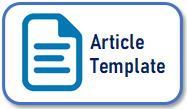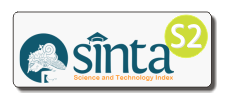Testing the Effect of General Election on Market Reaction of Islamic vis-à-vis Conventional Capital Market: Does Presidential Election Cycle Theory Exist in Indonesia?
DOI:
https://doi.org/10.14421/grieb.2024.122-04Keywords:
Stock, Presidential Election, Sharia, ConventionalAbstract
This paper investigates the Presidential Election Cycle Theory by examining the Indonesian stock market's reaction to presidential elections from 2004 to 2024. Specifically, it compares the reactions of Islamic and conventional capital markets. Employing an event study methodology with abnormal return as the indicator, the analysis utilizes secondary data comprising daily stock prices for seven days preceding and following each election. The findings indicate that presidential elections have a significant effect on capital market reactions, as evidenced by abnormal return values. However, the Islamic capital market demonstrates greater resilience than its conventional counterpart in responding to political events, such as presidential elections. The study concludes that the Presidential Election Cycle Theory is applicable to Indonesia, necessitating its consideration by policymakers, investors, and all stakeholders.
References
Arouri, M. E., Ameur, H. B., Jawadi N., Jawadi, F., & Louhichi, W. (2013). Are Islamic Finance Innovations Enough for Investors to Escape from a Financial Downturn? Further Evidence from Portfolio Simulations. Journal of Applied Economics, 45(24), 3412–20. https://doi.org/10.1080/00036846.2012.707776.
Blau, B. M., Griffith, T. G., & Whitby, R. J. (2019). Information in stock prices: The case of the 2016 US presidential election. Applied Economic, 51(40).
Bohl, L. (2016). Presidential Election Cycle Analysis. Charles Schwab.
Darmadji, T., & Fakhruddin, H. M. (2001). Pasar Modal di Indonesia: Pendekatan Tanya Jawab. Salemba Empat.
Diaconaşu, D., Mehdian, S., & Stoica, O. (2023). The Global Stock Market Reactions to the 2016 U.S. Presidential Election. SAGE Open, 13(2), 21582440231181352. https://doi.org/10.1177/21582440231181352
El-Masry, A. A., Mingo-López, D. V. de., Matallín-Sáez, J. C., & Tortosa-Ausina, E. (2016) Environmental Conditions, Fund Characteristics, and Islamic Orientation: An Analysis of Mutual Fund Performance for the MENA Region. Journal of Economic Behavior & Organization, 132, 174–197. https://doi.org/10.1016/j.jebo.2016.10.015.
Gbanador, M. A. (2022). Stock Market Response to Presidential Election Result Announcement in Nigeria. Port Harcourt Polytechnic Academic Research Journal.
Hassan, M. K., Khan, A. N. F., & Ngow, T. (2010). Is Faith‐based Investing Rewarding? The Case for Malaysian Islamic Unit Trust Funds. Journal of Islamic Accounting and Business Research, 1 (2), 148–171. https://doi.org/10.1108/17590811011086732.rmance.
Hirsch., J. A. (2022). Stock Trader’s Almanac 2022. John Wiley & Sons Inc.
Hirsch, Y. (1968). Stock Trader’s Almanac. WT Wealth Management. https://www.stocktradersalmanac.com/aboutus.aspx
Hoe, S., & Nippani, S. (2017). 2016 U.S. Presidential Election and Stock Markets in China. International Journal of Economics and Finance, 9(7), 32. https://doi.org/10.5539/ijef.v9n7p32
Hussein, K., and Omran, M. (2005). Financial Development in Arab Countries. Occasional Papers. https://ideas.repec.org//p/ris/irtiop/0215.html.
Imelda, I., Siregar, H., & Anggraeni, L. (2015). Abnormal Returns and Trading Volume in the Indonesian Stock Market in Relation to the Presidential Elections in 2004, 2009, and 2014. Bisnis & Birokrasi Journal, 21(2), 65–76. https://doi.org/10.20476/jbb.v21i2.4319
Jogiyanto, H. (2015). Teori portofolio dan analisis investasi (10th ed.). BPFE.
Kabir, R., & Thai, H. M. (2017). Does corporate governance shape the relationship between corporate social responsibility and financial performance? Pacific Accounting Review, 29(2), 227–258. https://doi.org/10.1108/par-10-2016-0091
Khanifah, K., Triyani, A., & Setyahuni, S. W. (2021). Do Regional Election and Presidential Election Affect Stock Exchange? An Event Study in the Indonesian Stock Exchange. JURNAL AKUNTANSI DAN BISNIS : Jurnal Program Studi Akuntansi, 7(1), 71–80. https://doi.org/10.31289/jab.v7i1.4454
Khanthavit, A. (2020). Reactions of Thailand’s Stock Market to the 2020 U.S Presidential Election.
Kirana, N., & Sembel, R. (2019). The Effect of Political Event on the Indonesia Stock Marke: An Event Study of Presidential Election on LQ45 Index Stock. 19(1).
Mansor, F., & Bhatti, M. I. (2011). Risk and Return Analysis on Performance of the Islamic Mutual Funds: Evidence from Malaysia. Global Economy and Finance Journal, 4 (1): 19–31
Nugraha, N. M., & Nugraha, D. N. S. (2020). The Influence of Stock Prices and Trading Volume on Abnormal Return of LQ45 Shares Pre and Post 2019 Election. Solid State Technology, 63(3).
Nguyen, A., & Roberge, M. (2008). Timing the stock market with a joint examination of the presidential election cycle and the yield curve. Studies in Economics and Finance, 25(3), 152–164. https://doi.org/10.1108/10867370810894684
Pujaastawan, G., & Wiksuana, I. G. B. (2020). Market Reaction to The Announcement of General Election Result of The President and Vice President of Indonesia in 2019 (Study on LQ 45 Stock Index on The Indonesia Stock Exchange). European Journal of Business and Management. https://doi.org/10.7176/EJBM/12-3-15
Putri, D. N., Sadalia, I., & Irawati, N. (2020). Analysis of LQ45 Stock Market Index Reaction on Presidential Election 2019. 3.
Qoyum, A., Al Hashfi, R. U., Zusryn, A. S., Kusuma, H., & Qizam, I. (2021). Does an Islamic-SRI portfolio really matter? Empirical application of valuation models in Indonesia. Borsa Istanbul Review, 21(2), 105–124. https://doi.org/10.1016/j.bir.2020.08.002
Qoyum, A., Mardiya, M., & Sakti, M. R. P. (2017). Indonesian Capital Market Efficiency: Islamic vis-a-vis Conventional. Shirkah: Journal of Economics and Business, 2(3).
Reilly, F. K., & Brown, K. C. (2009). Investment Analysis and Portfolio Management (9th ed.). South-Western Cengage Learning.
Samsul, M. (2015). Pasar Modal dan Manajemen Portofolio. Erlangga.
Saragih, E. M., Sadalia, D. I., & Silalahi, D. A. S. (2019). The Impact of Presidential Election on Abnormal Return, Trading Volume Activity, Security Return Variability in Banking Industries Listed on the Indonesia Stock Exchange. 5.
Tecualu, M., & Megge, R. (2009). Reaksi Pasar Modal Indonesia Terhadap Peristiwa Bom Kuningan Tahun 2009. 10(1).
Utami, S. D., & Qoyum, A. (2020). Islamic Capital Market Reaction on Presidential Election 2019 (Case Study of the Jakarta Islamic Index). Ihtifaz: Journal of Islamic Economics, Finance, and Banking, 3(2), 105. https://doi.org/10.12928/ijiefb.v3i2.2638
Wibowo, A., & Darmanto, S. (2019). Impact of Quick Count Result of President Election on Stock Prices and Trade Activities in the Indonesian Capital Market.
Wong, W. K., & McAleer, M. (2009). Mapping the Presidential Election Cycle in US stock markets. Mathematics and Computers in Simulation, 79(11), 3267–3277. https://doi.org/10.1016/j.matcom.2009.05.007
Zulfikar, R., & Mayvita, P. A. (2017). The Effect of Political Event Against Abnormal Return and Total Volume Sharia Shares Activity that Listed in Jakarta Islamic Index (JII). JEMA: Jurnal Ilmiah Bidang Akuntansi Dan Manajemen, 14(02), 157. https://doi.org/10.31106/jema.v14i02.511
Downloads
Published
Issue
Section
License

This work is licensed under a Creative Commons Attribution-ShareAlike 4.0 International License.
Global Review of Islamic Economics and Business is licensed under a
Creative Commons Attribution-ShareAlike 4.0 International License



















